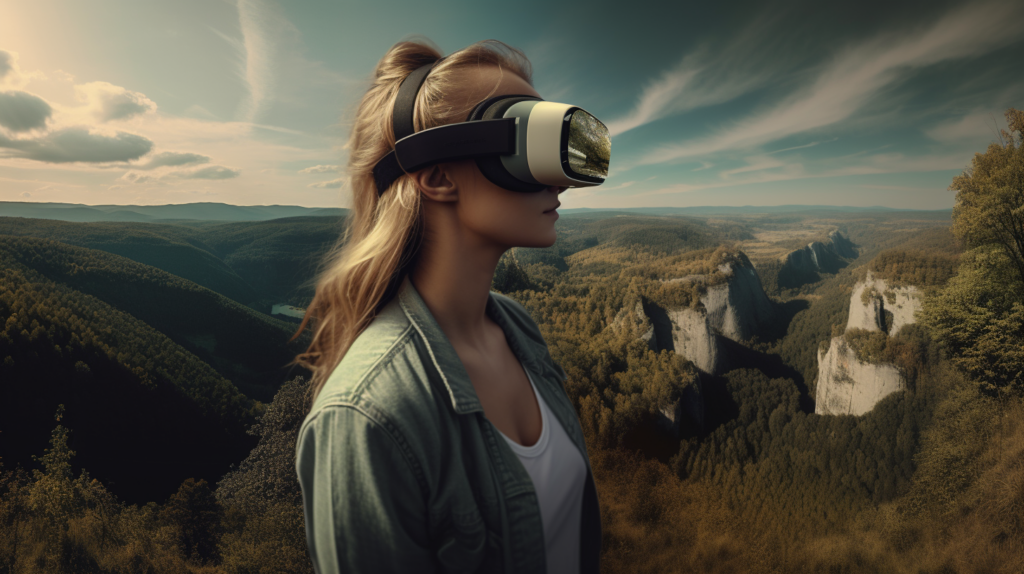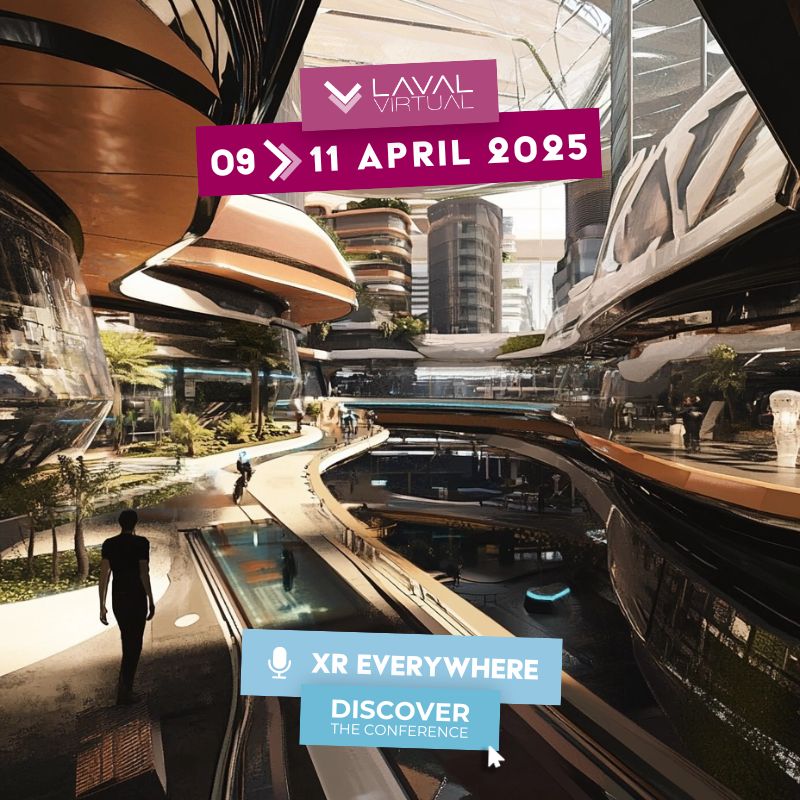
Amadeus is launching a virtual reality solution for travel agencies.
Crédits photos : Rendezverse
Amadeus’ mission is to revolutionise the travel and tourism experience. To achieve this, the international company is betting on new technologies. It has developed the prototype of a virtual reality solution for travel agencies, transforming the booking stage into an immersive experience. Amadeus will be exhibiting at Laval Virtual on April 10-12, 2024, on stand B45. Interview with Nicolas Roig, Innovation Leader & Engineering Manager.
Can you introduce your company?
Amadeus is one of the world’s leading providers of travel software solutions. With over 18,000 employees, Amadeus is an international company with more than 150 nationalities represented among its workforce. Amadeus’ mission is to make the travel experience better for everyone. In November 2023, the Business France agency awarded the “Innovation and innovative technologies” prize to Amadeus for its ambitious investments in innovation. Amadeus values in-house innovation and it was by proposing a solution for using immersive technologies to make travel preparation easier that we caught the attention of the jury, out of more than 250 ideas submitted.
What will your company show at Laval Virtual 2024?
Having been passionate about immersive technologies for many years, my friend and colleague Benjamin and I were surprised at how little these technologies were used in the travel industry. However, we were convinced that this technology, the keystone of the future of social networks, could have a major impact on the travel sector, particularly by improving the immersive and social experience during preparation and sales.
We have developed a prototype for the creation, organisation and distribution of immersive content aimed at highlighting offers, encouraging sales and facilitating travel preparation, based on extended reality technologies. To enable the progressive creation of content and facilitate its distribution to the general public, our prototype will initially be aimed at physical travel agencies, before being made more widely accessible, potentially becoming a major distribution channel for tourism players.
Imagine yourself in your travel agency tomorrow, planning your trip. Instead of the traditional catalogue photos, the travel consultant will provide you with a mixed reality headset and guide you through destinations, hotels or activities with an immersion never felt before. We can then take this experience home to you and your loved ones, giving you access together to experts from all over the world to build the best travel experience. Today, at Laval Virtual 2024, we’re giving you the chance to discover the first version of this product. Our aim is to find partners who are ready to invest with us in this ambitious project.
What is your company’s current innovation?
Innovation at Amadeus covers a very wide spectrum. Amadeus covers the entire world of travel and aims to facilitate the travel experience in all areas. For example, one of Amadeus’ latest acquisitions is a biometrics solution to facilitate passenger management at airports. Another element that is generating a lot of innovation in our sector is the migration of our applications to the cloud. However, it’s true that, as with many companies, AI remains the subject that’s attracting our particular attention at the moment.
What innovation do you think has most transformed the world of VR/AR?
Pioneering companies such as Valve and Oculus were the first to introduce VR to the general public, making the technology more accessible and generating wider interest. The launch of the Oculus Quest 1 headset marked a turning point by enabling a stand-alone, wireless VR experience, further democratising the technology.
However, the development of VR is not limited to the progress made by companies specialising in this field. Innovations outside VR, such as the miniaturisation of screens and the motion controllers popularised by the Nintendo Wii, have also been crucial to its development. These advances have enabled more realistic immersion and more natural interaction with virtual environments.
In addition, the integration of generative artificial intelligence is opening up new perspectives for user interaction, offering more personalised and immersive experiences. The evolution of VR/AR is the result of collaboration between different industries and a convergence of diverse technologies, paving the way for an increasingly immersive and innovative future.
The baseline of our 26th edition is “Act For The Future”. In your opinion, how can immersive technologies impact the world of tomorrow?
One of mankind’s long-held dreams is teleportation. Being able to transport ourselves instantly to different parts of the world and beyond is one of the biggest fantasies in science fiction. We had always imagined only physical teleportation, but in the end what do immersive technologies promise if not to be able to instantly see, feel and touch a place other than the one you are in, and to find yourself there alone, with your loved ones or thousands of strangers? This ‘teleportation’ even goes beyond what we could have imagined, as it allows us to travel to places that don’t even exist (or no longer exist) in our reality, with infinite possibilities and without any physical risk.
But with great power comes great responsibility: it’s up to us, those involved in the development of these technologies, to ensure that they always play their part in enhancing reality, rather than replacing it. For a long time, we thought that putting a headset on our face would isolate us from the world. But what if the opposite was true? What if it opened us up to the world and to other cultures, enriching us with their diversity and erasing our differences? We don’t want to replace travelling, for example, but we can help you prepare for it, experience it and share it.



